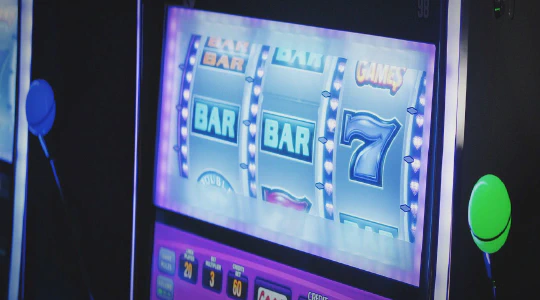What is the Minimum Age Requirement for Gambling at a Casino?
Gambling is a popular and controversial activity that has been scrutinized by governments around the world. Many different types of gambling activities exist, including casinos, lotteries, online gaming, and sports betting. Although gambling is legal in many countries, it is subject to regulation and restrictions that vary depending on the location.
One of the most common questions asked about gambling is what age is legal to start gambling in a casino. The answer to this question varies depending on the country and jurisdiction. The legal age for gambling can be as low as 16 years old in some places, or as high as 21 years old in others. It is important to understand the laws and regulations in your region to avoid legal issues.
This article will explore the minimum age for casino gambling in different parts of the world. It will also discuss how casinos verify the age of their patrons, why underage gambling is harmful, and what can be done to prevent it. Gambling can be a fun and exciting activity, but it is important to do it responsibly and within the legal limits.
Minimum Age for Casino Gambling
When it comes to casino gambling, it is important to know the minimum age requirements in order to avoid breaking the law and facing penalties or consequences. The minimum age for casino gambling can vary depending on the country, state, or province in which the casino is located.
In the United States, the minimum age for casino gambling varies from state to state. In most states, the minimum age is 21 years old, while in some states, it is 18 years old. It is important to check the minimum age requirements for casino gambling in each state before visiting a casino in order to avoid any legal issues Mostbet.
In Canada, the minimum age for casino gambling is 19 years old in most provinces, while in Quebec, Manitoba, and Alberta, the minimum age is 18 years old. It is important to note that some casinos may have their own age restrictions and policies, so it is best to check with the casino directly.
In Europe, the minimum age for casino gambling varies from country to country. In some countries, such as Germany and France, the minimum age is 18 years old, while in others, such as the United Kingdom and Spain, the minimum age is 21 years old. It is important to research the minimum age requirements for casino gambling in the specific country before visiting a casino.
- In summary, the minimum age for casino gambling can vary depending on the location of the casino.
- It is important to research and understand the minimum age requirements for casino gambling in order to avoid breaking the law and facing consequences.
- While most states in the United States have a minimum age of 21 years old, some have a minimum age of 18 years old.
- In Canada, the minimum age is mostly 19 years old, with some provinces having a minimum age of 18 years old.
- Some casinos may have their own age restrictions and policies, so it is best to check with the casino directly.
Legal Gambling Age in the United States
In the United States, the minimum age for gambling varies depending on the type of activity and the state where it takes place. The federal law prohibits anyone under 18 years of age from gambling or buying lottery tickets, but each state has the power to set its own minimum age limit.
For land-based casinos and racetracks, the minimum age is usually 21 years old. This is the case in most states, including Nevada, New Jersey, and Pennsylvania. However, some states allow 18-year-olds to gamble, such as California and New York.
For online gambling and sports betting, the minimum age is also set by the state. Some states have legalized online gambling, but only for those who are at least 21 years old, while others permit it for 18-year-olds or older. It is important to check the state laws and regulations before engaging in any form of online gambling.
The minimum age for playing bingo and buying lottery tickets varies by state, but it is generally set at 18 years old. However, some states require players to be 21 years old for certain lottery games or to claim large prizes.
In summary, the legal gambling age in the United States varies by state and by activity. While the federal law sets the minimum age at 18, each state has its own rules that must be followed. It is important to check the local laws and regulations before engaging in any form of gambling.
The Age Limit for Gambling in Vegas Casinos
Las Vegas is known for its luxurious casinos that attract millions of visitors every year. However, not everyone is allowed to gamble in these casinos due to age restrictions. The minimum age for gambling in Las Vegas casinos varies depending on the type of game being played.
The minimum age for slot machines and video poker is 21 years old. This means that anyone who is 21 or older can play these games without any restrictions. These games are popular among younger adults who want to enjoy the casino atmosphere without the added pressure of table games.
The minimum age for table games is also 21 years old. This includes games such as blackjack, craps, roulette, and poker. The reason for the higher age limit is because these games require a certain level of strategy and skill, which may not be fully developed in those under 21.
Minors are not allowed to be present on the casino floor. This means that even if they are not gambling, minors are not allowed to loiter or observe the games being played. They are only allowed to pass through the casino on their way to other areas of the resort.
If you are under the minimum age for gambling in Las Vegas, there are still plenty of other activities and attractions to enjoy. From shopping to dining to shows and concerts, Las Vegas has something for everyone.
The Minimum Age for Casino Gambling in Atlantic City
Atlantic City is one of the most popular gambling destinations in the United States. It offers a variety of casino games such as blackjack, craps, roulette, and slot machines. However, in order to participate in the excitement of casino gambling, there are age requirements that players must meet.
In Atlantic City, the minimum age for casino gambling is 21 years old. This means that individuals who are under the age of 21 are not allowed to gamble at any of the casinos in the city. The age limit is strictly enforced, with casino security closely monitoring the gaming floor for any minors attempting to gamble.
In addition to the age requirement for gambling, individuals must also present valid identification in order to enter a casino. This is to ensure that guests are of legal age and to prevent underage gambling. Acceptable forms of identification include a driver's license, passport, or state-issued ID card.
It is important to note that underage gambling is not only illegal, but it can also have serious consequences for both the individual and the casino. Individuals who are caught gambling underage may face fines, community service, and even imprisonment. Casinos that allow underage gambling may face fines and could potentially lose their license.
In summary, the minimum age for casino gambling in Atlantic City is 21 years old. Make sure to bring valid identification when visiting a casino to ensure a smooth and legal gaming experience. Remember that gambling underage is illegal and can have serious consequences.
The Minimum Age for Casino Gambling in Other States
While the minimum age for casino gambling in the United States is 21 years old in most states, there are a few that have a lower age requirement. In some states, the minimum age varies depending on the type of gambling activity.
- 18 Years Old: Some states, such as Oklahoma and Florida, allow for gambling at casinos and racetracks when the player is 18 years old or older.
- 19 Years Old: In Canada, the legal gambling age varies by province. In some provinces, such as British Columbia and Quebec, the legal age for casino gambling is 19 years old.
- Varying Ages: Some states, like Montana and Wyoming, have a minimum gambling age of 18 years old for electronic gaming devices, but 21 years old for table games.
It is important to note that while these states may have lower age requirements for gambling, they still abide by strict regulations and enforce penalties for underage gambling. It is crucial for players to know and follow the legal age requirements in their area, as consequences for breaking the law can result in fines or even legal trouble.
If you are unsure of the minimum gambling age in your state or province, it is recommended to do your research and consult with local authorities before participating in any gambling activities.
The Minimum Age for Online Casino Gambling
Online casino gambling has become increasingly popular in recent years, but not everyone is aware of the minimum age requirement to participate. In most countries, the minimum age for online casino gambling is 18 years old. This means that individuals under the age of 18 cannot legally gamble online and are prohibited from accessing online casino sites.
It is important for online casinos to strictly enforce the minimum age requirement to ensure that underage individuals are not able to access their site and gamble. This is not only a legal requirement, but also a social responsibility to protect young individuals from the potential harms of gambling.
Some jurisdictions have even stricter age requirements for online gambling, such as the United Kingdom where the minimum age is 21. It is important to check the legal gambling age in your own jurisdiction before participating in online casino gambling.
Online casinos have various ways of verifying a player's age and identity, such as requiring a government-issued ID or passport. It is important for players to provide accurate and truthful information when registering for an online casino account to avoid any potential legal issues.
In conclusion, the minimum age for online casino gambling varies by jurisdiction but is generally 18 years old. It is important for both online casinos and players to respect and adhere to these age requirements to ensure a safe and responsible online gambling experience.
How Casinos Verify Age
As casinos have a minimum age requirement in order to gamble, it's important for them to verify the age of their patrons. There are several ways that casinos can do this:
- ID Check: The most common method used by casinos is to ask for a government-issued ID, such as a driver's license or passport, to verify the age of the person. The ID must show the person's date of birth and photo to be considered valid.
- Age Verification Software: Some casinos use age verification software which can cross-reference a person's personal information, such as their name and date of birth, with public records to verify their age.
- Birth Certificate: In some cases, a birth certificate may be requested to verify a patron's age. This method is less common and is generally used when the person doesn't have a valid form of identification.
Casinos take the verification of age very seriously and will refuse service to anyone who is underage. It's important for anyone who plans on gambling at a casino to bring a valid form of identification with them to avoid any issues.
Penalties for Underage Gambling
Underage gambling is a serious offense in most countries and is punishable by law. Many casinos have strict regulations in place to ensure that minors are not allowed to gamble. Nevertheless, some individuals may try to circumvent these rules, and if caught, they could face severe penalties.
Penalties for underage gambling can vary depending on the country and the severity of the offense. In some cases, minors caught gambling may face fines, community service, or even imprisonment. Additionally, minors who are found to have used fake ID to gain access to a casino or online gambling site may face additional penalties.
Moreover, individuals who facilitate underage gambling may also face penalties. This includes employees of a casino who knowingly allow minors to gamble or those who sell or provide gambling products to minors.
Parents and guardians of minors who have been caught gambling may also face consequences. They could be held responsible for not supervising their children and allowing them to engage in illegal activities. This could result in fines or other legal ramifications.
Overall, underage gambling is a serious offense that carries severe penalties. It is important for individuals of all ages to be aware of the legal gambling age in their country and to abide by the laws in place. Moreover, parents and guardians should educate their children about the dangers of gambling and monitor their activities to prevent underage gambling.
Why is the Legal Gambling Age Important?
The legal gambling age is a critical issue in the gambling industry. It refers to the age at which an individual is legally allowed to participate in gambling activities. Different countries and states have varying gambling age limits, and it is essential to adhere to them to avoid facing legal penalties. The legal gambling age is important for several reasons, including the following:
- Prevention of underage gambling: The legal gambling age serves as a safeguard against underage gambling. It ensures that minors, who are not mature enough to handle the consequences of gambling, do not engage in this activity.
- Protection of vulnerable individuals: The legal gambling age protects vulnerable individuals such as those with addiction or mental health issues. The age limit helps to prevent people who may be vulnerable to gambling addiction from engaging in this activity.
- Enforcement of regulations: The legal gambling age facilitates the enforcement of gambling regulations. It requires that casinos and other gambling establishments verify the age of individuals before allowing them to gamble. This helps to prevent illegal activities and promotes responsible gambling.
- Promotion of responsible gambling: The legal gambling age promotes responsible gambling. It encourages individuals to gamble in a responsible manner and discourages problem gambling behaviours, such as chasing losses and facing financial consequences.
In summary, the legal gambling age is important for several reasons, including preventing underage gambling, protecting vulnerable individuals, enforcing regulations, and promoting responsible gambling. It is crucial that individuals and gambling establishments adhere to these age limits to maintain a safe and responsible gambling environment.
The Debate Surrounding the Minimum Gambling Age
There has been an ongoing debate regarding the minimum age for casino gambling. Some argue that the legal age should be lowered, while others believe that it should be raised.
Those who advocate for a lower minimum age argue that 18-year-olds have all the legal rights and privileges of an adult, and therefore, should be allowed to partake in gambling activities as well. They also argue that lower minimum age requirements would increase revenue for the industry and create jobs.
On the other hand, those who argue for a higher minimum age believe that gambling can be addictive and can lead to financial ruin. They argue that young adults may not have the maturity or experience to handle the risks involved in gambling and are more susceptible to developing addictive behaviors. They also point to studies that suggest that raising the minimum age can reduce problem gambling and related social issues.
Currently, the minimum age for casino gambling varies between countries and states. In the United States, the legal age ranges from 18 to 21, depending on the particular state. In Canada and Europe, the legal age is 18. The debate surrounding the minimum gambling age is likely to continue, as both sides have valid arguments and concerns.
How Underage Gambling Affects Society
Underage gambling has become a significant issue in society, affecting not just the individual but the community as a whole. The negative effects of gambling can lead to addiction, bankruptcy, and broken relationships, causing significant social and economic burdens on families and communities.
One way underage gambling affects society is through online gambling. Many underage individuals can easily access online gambling sites, leading to increased risk of problem gambling. This can lead to financial problems and poor academic performance due to time spent gambling instead of studying.
Underage gambling also affects society through crime. Young people who develop a gambling addiction may resort to stealing to fund their habit, leading to an increase in crime rates in the community. This can also lead to damaged relationships with family and friends, causing further social problems.
Furthermore, underage gambling can lead to mental health issues such as depression and anxiety, affecting not just the individual but their family and friends. This may result in increased medical costs and loss of productivity in the community.
In conclusion, underage gambling is a serious issue that affects society on multiple levels. It is crucial for parents, educators, and the government to take steps to prevent underage gambling and to educate young people on the negative effects of gambling on their lives and on society as a whole.
Tips for Parents: Talking to Your Child About Gambling
Gambling can be a fun activity for adults, but it can have serious consequences for children. As a parent, it's important to talk to your child about the risks of gambling and set clear boundaries. Here are some tips to help you have an open and honest conversation with your child:
- Start early: It's never too early to start talking to your child about responsible gambling. You can use age-appropriate language to explain the risks and dangers of gambling.
- Be honest: It's important to be honest with your child about your own experiences with gambling. If you've had a problem with gambling in the past, share your story and talk about how you overcame it.
- Set clear rules: Let your child know what is and isn't acceptable when it comes to gambling. This could include setting a limit on how much money they can spend on it, or specifying specific times when they are allowed to gamble.
- Encourage healthy activities: Help your child find other hobbies and activities that they enjoy and that don't involve gambling. This could include sports, music, or art.
Remember, the most important thing is to keep the lines of communication open with your child. By talking openly and honestly about gambling, you can help them make informed decisions and avoid the potential risks it can pose.
How to Help Someone with a Gambling Problem
Gambling addiction is a serious issue that affects millions of people around the world. It can lead to financial ruin, damaged relationships, and a range of other negative consequences. If you know someone who is struggling with a gambling problem, it's important to offer them support and guidance in their journey towards recovery.
1. Be understanding
The first step in helping someone with a gambling problem is to be understanding and compassionate. It's important to acknowledge that addiction is a disease and not a choice. Try to avoid judgment or criticism and instead offer empathy and support.
2. Encourage them to seek help
Encourage your loved one to seek professional help to tackle their gambling addiction. They might benefit from therapy, counseling, or even a support group like Gamblers Anonymous.
3. Set boundaries
If your loved one has borrowed money from you or is using your credit card to gamble, it's important to set clear boundaries. Let them know that you are willing to help them get their life back on track, but that you cannot continue to enable their addiction.
4. Offer alternative activities
Suggest alternative activities that your loved one can do instead of gambling. Encourage them to develop a new hobby or to spend time with friends and family.
5. Take care of yourself
Taking care of someone who is struggling with addiction can be emotionally exhausting. It's important to prioritize your own self-care, whether that means seeing a therapist, joining a support group for families of addicts, or taking time for yourself.
Remember, helping someone with a gambling problem is a journey, and there will be setbacks along the way. However, with the right support and guidance, your loved one can overcome their addiction and start living a fulfilling life.
The Future of the Minimum Gambling Age
As the gambling industry continues to evolve and attract a wider audience, the minimum age for casino gambling has become a topic of much debate. With more and more young people interested in the thrill of gambling, many are questioning whether the current minimum age of 21 is appropriate or whether it should be lowered.
On one hand, those in favor of lowering the minimum gambling age argue that it would create more business for casinos and decrease the number of underage individuals who gamble illegally. However, others believe that a lower minimum age could increase the likelihood of problem gambling and ultimately harm young people.
One possible solution to this debate could be to implement a tiered system for gambling ages, similar to what is already used for alcohol consumption in many countries. This system would allow individuals to gamble at a younger age for lower stakes, with higher age requirements for higher stakes and games.
Overall, the future of the minimum gambling age is uncertain, and it will likely continue to be a topic of much discussion and debate within the gambling industry and society as a whole.



